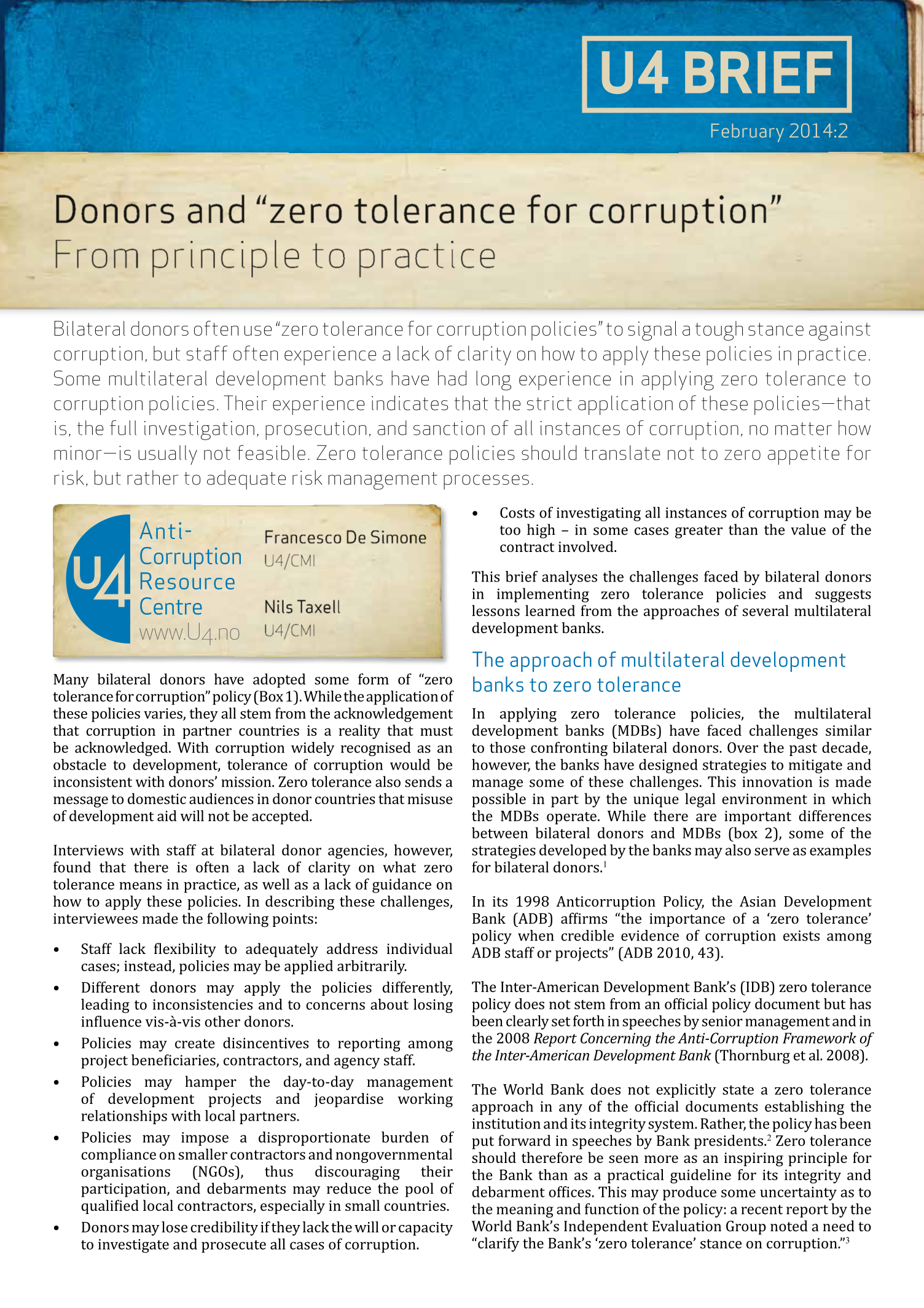U4 Brief
Donors and "zero tolerance for corruption": From principle to practice
Bilateral donors often use “zero tolerance for corruption policies” to signal a tough stance against corruption, but staff often experience a lack of clarity on how to apply these policies in practice. Some multilateral development banks have had long experience in applying zero tolerance to corruption policies. Their experience indicates that the strict application of these policies—that is, the full investigation, prosecution, and sanction of all instances of corruption, no matter how minor—is usually not feasible. Zero tolerance policies should translate not to zero appetite for risk, but rather to adequate risk management processes.

Cite this publication
De Simone, F.; Taxell, N. (2014) Donors and "zero tolerance for corruption": From principle to practice. Bergen: Chr. Michelsen Institute (U4 Brief 2014:2) 4 p.
Disclaimer
All views in this text are the author(s)’, and may differ from the U4 partner agencies’ policies.
This work is licenced under a Creative Commons Attribution-NonCommercial-NoDerivatives 4.0 International licence (CC BY-NC-ND 4.0)


